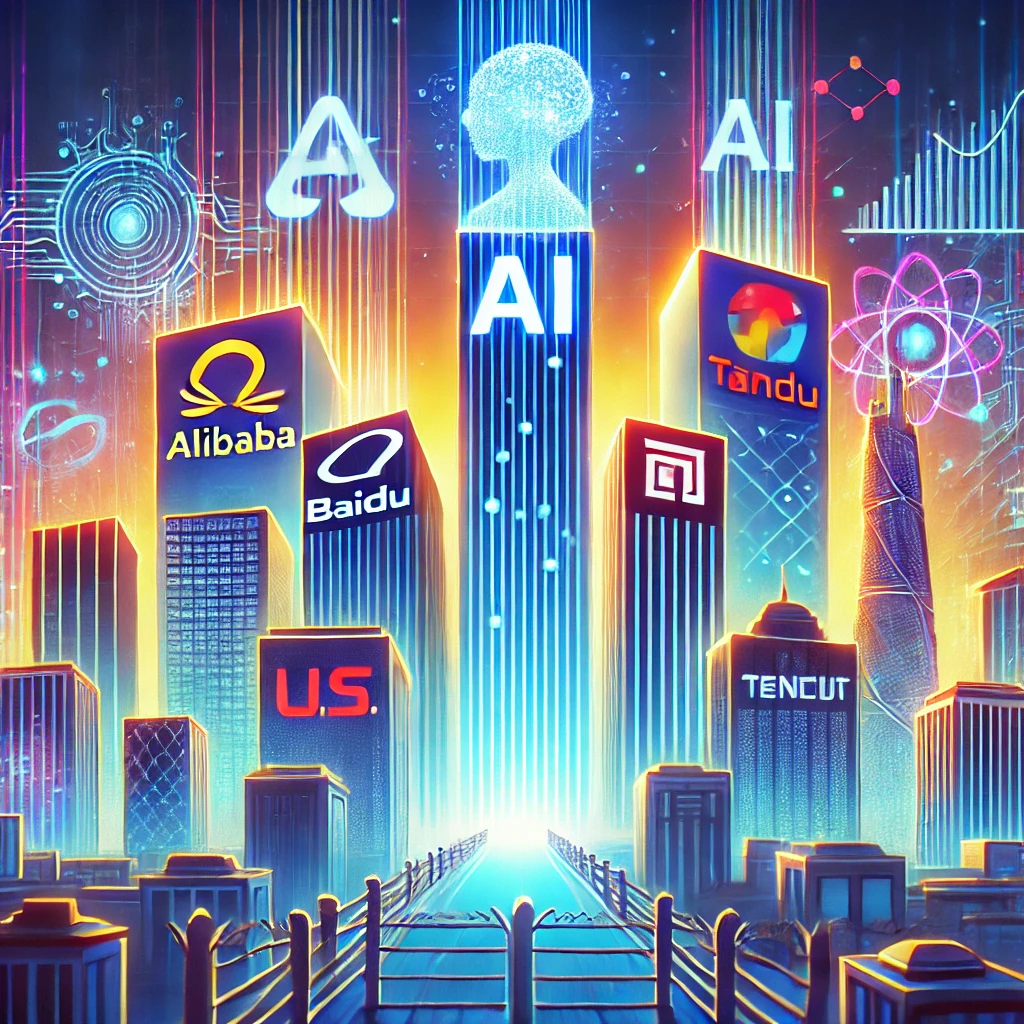China’s Tech Giants Invest Heavily in AI Despite US Restrictions
Despite the United States’ ongoing restrictions on advanced technology exports to China, the country’s leading tech companies are doubling down on their investments in artificial intelligence (AI). Tech giants like Alibaba, Baidu, and Tencent are pushing forward with ambitious AI projects, signaling that the country is determined to develop its own homegrown AI capabilities, even in the face of geopolitical tensions.
Resilience Amidst US Restrictions
US sanctions and export controls, particularly on advanced semiconductor chips and AI hardware, have posed significant challenges to China’s tech industry. These measures were intended to curb China’s access to critical technologies needed for AI development, including high-performance chips produced by companies like Nvidia. The restrictions also aim to limit China’s ability to strengthen its AI capabilities in areas that could have military applications.
However, rather than slowing down, China’s tech giants are making bold moves to innovate and build self-reliant AI infrastructures. Companies are investing heavily in research and development (R&D), exploring alternative technologies, and forming partnerships with domestic suppliers to overcome the restrictions imposed by the US.
Major Investments by Tech Leaders
- Alibaba: The e-commerce behemoth Alibaba has been channeling billions into AI development through its cloud computing division, Alibaba Cloud. The company has announced significant advancements in AI-driven cloud services, including AI-powered tools for business optimization, logistics, and finance. Alibaba is also working on developing its own AI chips to reduce reliance on foreign suppliers, positioning itself as a leader in the next generation of AI hardware.
- Baidu: Known as China’s answer to Google, Baidu is at the forefront of AI innovation in China. The company’s AI research focuses on natural language processing, autonomous driving, and cloud AI services. Baidu’s Apollo autonomous driving platform is gaining traction despite the restrictions on importing critical AI components from the US. By leveraging its own AI chip, Kunlun, Baidu is strengthening its capabilities and continuing to innovate in the field of autonomous vehicles.
- Tencent: The social media and gaming giant Tencent is also investing heavily in AI, particularly in the areas of AI-driven healthcare, fintech, and gaming. Tencent is pouring resources into AI R&D, including large-scale language models and AI systems that enhance gaming experiences. Tencent’s commitment to AI research underscores its goal to maintain its competitive edge in entertainment and business sectors, even without access to US-made technology.
Building Self-Sufficient AI Ecosystems
China’s tech giants are increasingly focused on developing self-sufficient AI ecosystems. This means investing in domestic semiconductor manufacturing, creating AI chips that can compete with Western alternatives, and fostering innovation across industries such as healthcare, automotive, and robotics.
Beijing’s support for these efforts is clear, with government funding and policy initiatives aimed at bolstering the country’s AI industry. The Chinese government has set ambitious goals for becoming a global leader in AI by 2030, and these companies are central to that vision. As part of this strategy, China is encouraging its tech sector to reduce dependence on foreign technology by promoting innovation and collaboration with local suppliers.
Challenges Ahead
Despite the progress made, Chinese tech companies face significant challenges in achieving full independence in AI. Developing advanced AI chips and software is complex and requires expertise that has traditionally been dominated by US-based firms. The loss of access to leading-edge technology from companies like Nvidia and Intel has created bottlenecks in China’s AI development.
Moreover, without access to the most advanced hardware, China’s AI systems may lag behind in certain areas, particularly in high-performance computing and training large-scale AI models. Nevertheless, Chinese firms remain undeterred, with many tech leaders expressing confidence that they can innovate around the restrictions.
Looking Ahead
The race for AI dominance continues to intensify as China’s tech giants adapt to the evolving global tech landscape. By ramping up investments in AI R&D and pursuing self-sufficiency, Chinese companies are signaling their intent to become global leaders in artificial intelligence, even in the face of US restrictions.
While the road ahead is fraught with challenges, the determination of China’s tech giants to push the boundaries of AI innovation suggests that the country will continue to make strides in the field. With the support of the Chinese government and a growing domestic tech ecosystem, these companies are well-positioned to drive the next wave of AI development in the global arena.
For now, the world watches closely as China’s tech industry adapts, evolves, and competes in the global AI arms race.





